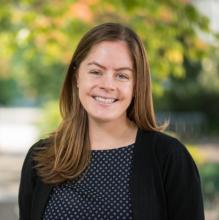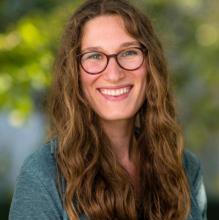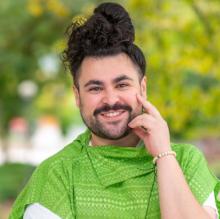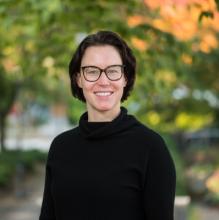In collaboration with the Solar Democracy and Equity Collaborative my research focuses on urban energy justice and energy poverty in the United States by directly engaging in research with low- and middle-income communities in Maryland. This specific research project aims to benefit these communities through rooftop and community solar projects to reduce energy poverty.
Research Description
My research focuses on urban energy justice and energy poverty in the United States, primarily in the context of systemic injustice in racial and ethnic minority communities. Currently, I work with the Solar Democracy and Equity Collaborative, directly engaging in research with low- and middle-income communities in Maryland. This specific research project aims to benefit these communities through rooftop and community solar projects to reduce energy poverty, lowering energy burdens and enabling households to make fewer tradeoffs between paying energy bills and affording rent or mortgage, food, medicine, and other necessities.
What does being a Public Scholar mean to you?
Being a public scholar means I am afforded not only the opportunity to advance knowledge in my area of study, but also to work with the public in a way that is not traditionally done by academics. I am able to amplify traditionally underrepresented voices, with community members not only acting as stakeholders but as co-creators of knowledge. Together, we are able to affect long-lasting positive change.
In what ways do you think the PhD experience can be re-imagined with the Public Scholars Initiative?
Traditionally, doctoral dissertations have been focused on theory and have had little impact outside the academy. The PSI removes those outdated barriers and encourages doctoral researchers to engage in innovative ways. We are able to participate integratively with communities, learning from all members and their lived experiences. It allows doctoral researchers to craft dissertations with impacts that will live beyond our doctoral studies.
How do you envision connecting your PhD work with broader career possibilities?
I see my doctoral work as the first step in a long career in academia. There are many developing facets of environmental and energy justice, and I hope to expand the body of knowledge and help establish new philosophies and frameworks in the field. I am passionate about both teaching and research, and I hope to make meaningful contributions in both areas. As my work falls at the intersection of social and environmental justice, I am excited to engage and mentor students who want to advance these causes.
How does your research engage with the larger community and social partners?
I am thankful to work with a collaborative of six community partners in Maryland with the shared goals of expanding solar access and reducing energy burdens in low- and middle-income communities. These include local governments, nongovernmental organizations, and legal supports to connect our work to larger policy goals, including legislative and regulatory policy.
Why did you decide to pursue a graduate degree?
For most of my life, I have been interested in social justice and environmental issues. Partway through my undergraduate degree it became clear to me that I had interest in pursuing a career in academia, but I had many interests and was unsure what direction to take. In finding my path, I earned two master’s degrees, and it was during my Master of Science that my interests converged in the study of energy justice. I had several wonderful professors who encouraged me to follow this passion and continue on to a doctoral degree. I am eternally thankful for the professors who encouraged me throughout my studies.
Why did you choose to come to British Columbia and study at UBC?
Energy justice is a burgeoning field in Canada and the United States, with much of the established literature having from the UK. The field is interdisciplinary in nature, requiring a school and supervisor that value this type of work. Furthermore, I firmly believe that while the reputation of the institution is important in selecting a program, the ultimate decision should center on the doctoral supervisor-student relationship. I chose UBC because of the exemplary interdisciplinarity of the Faculty of Forestry, but more importantly because of the expertise, support, and dedication of my supervisor.
Being a public scholar means I am afforded not only the opportunity to advance knowledge in my area of study, but also to work with the public in a way that is not traditionally done by academics. I am able to amplify traditionally underrepresented voices, with community members not only acting as stakeholders but as co-creators of knowledge. Together, we are able to affect long-lasting positive change.




